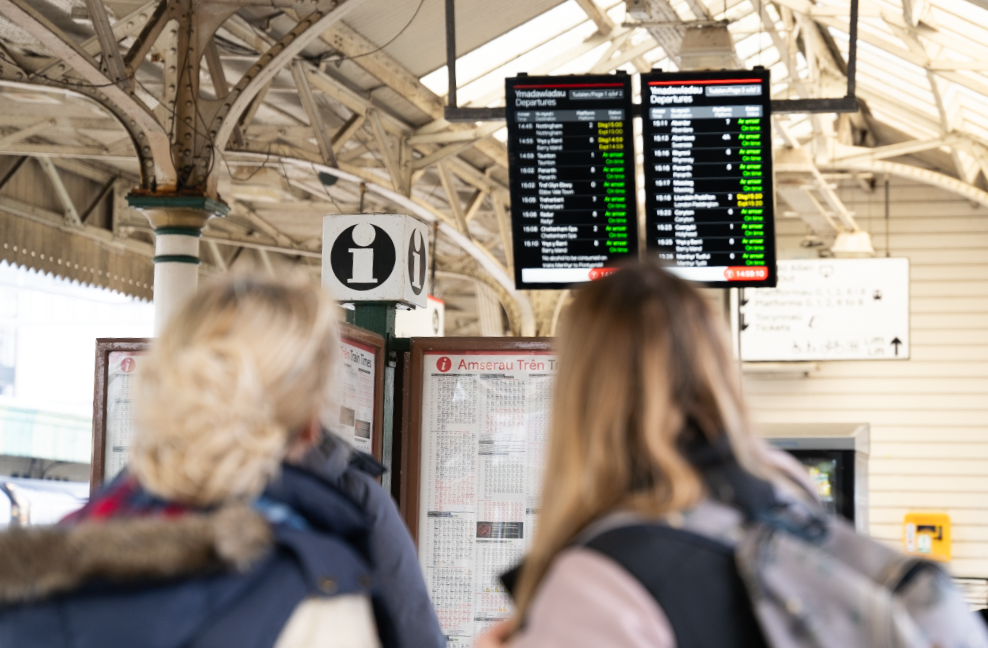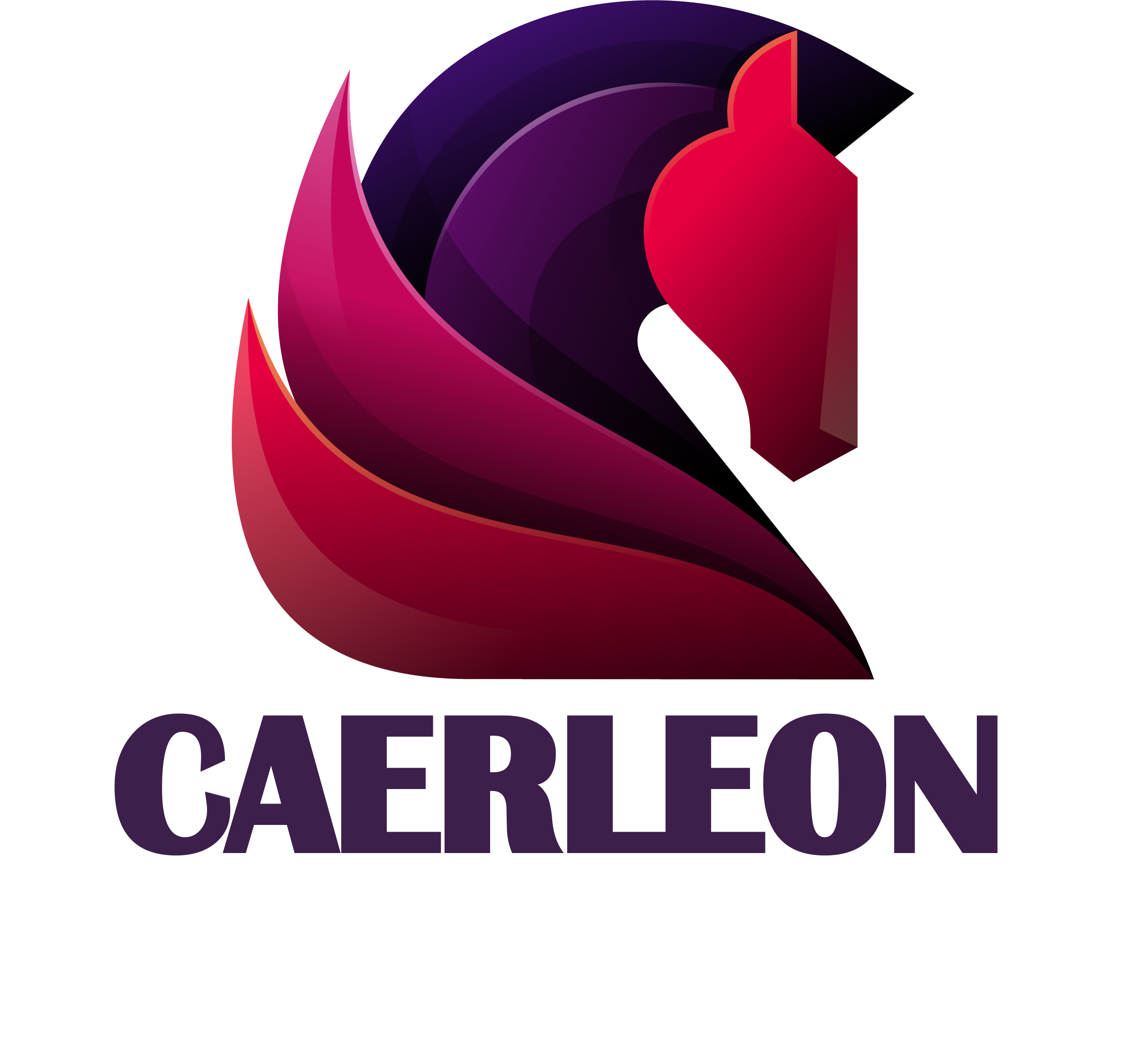We brought together leading voices from across Wales’ tech ecosystem for an open and constructive conversation about how we can strengthen collaboration between Transport for Wales (TfW) and tech leaders to help advance and transform Wales’ transport network.
On 15 July 2025, we swapped offices and boardrooms for Bunsen burners as we hosted a roundtable in collaboration with TfW in the Lab at Techniquest as part of the TfW Accelerator Demo Day. Tech, innovation and industry leaders explored how the Welsh ecosystem can help achieve TfW’s vision: getting people out of their cars and into sustainable public transport.
TfW’s Innovation Journey
Transport for Wales is embarking on an ambitious transformation and making significant infrastructure investments. As part of their vision, they recognise that infrastructure alone won’t solve their biggest challenge: building trust with passengers and convincing them to choose public transport over private cars.
TfW has just concluded its sixth cohort of their innovation Accelerator programme, led by Barry Lloyd, Head of Innovation and New Product Development. At the roundtable, Barry outlined how TfW approaches innovation through multiple channels, including Innovation Accelerators, external workshops, design thinking sessions, and internal hackathons.
Key Challenges and Opportunities in Welsh Transport
The roundtable identified several challenge areas where Welsh businesses could make a transformative impact:
- Reliability and Trust Building: Ensuring every bus and train arrives on time would be the single most effective way to build passenger trust. This operational excellence forms the foundation of everything else TfW is trying to achieve.
- Affordability and Value: Current fees are often seen as high compared to driving and parking, creating a significant barrier to adoption. Finding ways to improve the value proposition while exploring new revenue streams beyond ticket sales presents both a challenge and an opportunity.
- Connectivity and Experience: Poor connectivity on trains limits their appeal for commuters who need to work while travelling. Additionally, issues like inadequate parking at train stations create friction in the passenger journey.
- Safety and Accessibility: Improving safety for both colleagues and customers is a priority, with particular focus on creating an environment where women and girls feel safe using public transport is essential for building trust and increasing ridership.
- Climate Resilience: Managing the impact of weather on transport networks is becoming increasingly critical. From overheating rails to customer evacuations, TfW needs solutions that can predict and mitigate climate impacts on their services.
- Cultural Mindset Shift: Encouraging a fundamental shift toward public transport, particularly among young people, requires innovative approaches.

Engaging the Innovation Ecosystem
The discussion revealed several barriers within Wales’ innovation ecosystem that could be improved:
- Startup Accessibility: There’s frustration that larger, established companies often win contracts while innovative Welsh startups struggle to access procurement processes. The challenge lies in balancing the need for proven track records in safety-critical transport applications with supporting emerging local talent.
- Innovation vs Procurement Divide: Bridging the gap between innovation initiatives and procurement processes would make innovation a more straightforward process from idea to delivery. Companies working with TfW on innovative pilots often become long-term relationships, but these don’t always translate into contracts, creating inefficiencies and missed opportunities.
- Risk Aversion: The transport sector’s understandable focus on safety and reliability can create risk-averse procurement practices. This tension between innovation and proven reliability needs careful management to allow new solutions to emerge while maintaining safety standards.
- Geographic vs Quality Balance: While there’s strong support for Welsh businesses, participants recognised the importance of finding the best solutions regardless of location. The key is identifying where Welsh capability exists and filling gaps where it doesn’t. Joint bids combining Welsh and international expertise could be a way forward.
Building a Stronger Innovation Pipeline
Several promising approaches emerged from the discussion:
- Collaborative Approaches: Encouraging larger companies to include smaller Welsh firms in procurement bids could create more opportunities for local innovation while maintaining the security that comes with established partners.
- Horizon Scanning: Better understanding of future trends and challenges over the next 5-10 years would help suppliers prepare and position themselves appropriately, rather than always playing catch-up.
- Cross-Sector Thinking: Bringing perspectives from outside the transport sector could unlock innovative approaches. Experience from education, healthcare, and other sectors could provide fresh thinking on transport challenges.
- Long-term Partnerships: Moving beyond short-term pilots to longer-term strategic partnerships would give innovative companies the stability to develop and scale their solutions properly.
The Path Forward
The roundtable highlighted that Wales has significant innovation capability. TfW’s current approach through accelerators and innovation programmes is already taking advantage and building more awareness of what can be achieved in Wales. Better mechanisms are needed to connect the talent and solutions in Wales with transport challenges to keep that momentum.
The discussion concluded with optimism about Wales’ potential to lead in transport innovation, provided the right frameworks and partnerships can be established. To lead the way in transport, the Welsh ecosystem needs:
- Clearer pathways from innovation to procurement
- Better integration between different parts of the ecosystem
- Long-term strategic planning that gives companies visibility of future opportunities
- Recognition that innovation and proven reliability can coexist with the right approach
With TfW’s commitment to working with solutions providers who can genuinely address their challenges, regardless of location, but with a clear preference for growing Welsh capability, the foundation exists for a thriving transport innovation ecosystem.
As Wales works toward its net zero targets and TfW continues its transformation, the collaboration between public sector ambition and private sector innovation will be crucial. The roundtable demonstrated that the expertise and enthusiasm exist.
Now it’s about creating the right conditions for that potential to be realised.
With special thanks to our partner, Transport for Wales, for co-hosting this open and constructive discussion. To learn more about Lab by Transport for Wales and their programmes to get involved, follow the Lab on LinkedIn and visit their website.
The post Transforming Transport: Welsh Tech & Innovation Leaders Discuss TfW’s Ambitions appeared first on Technology Connected.

